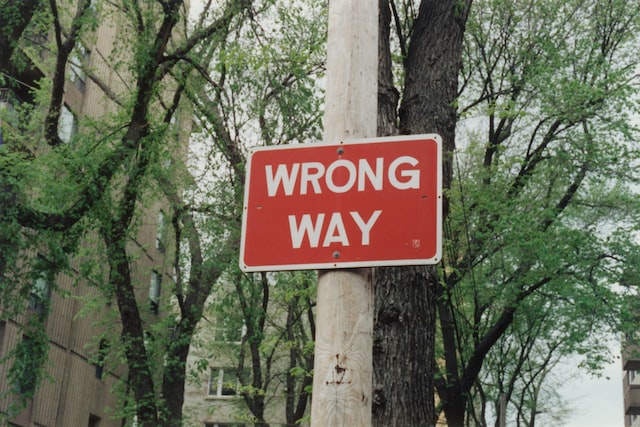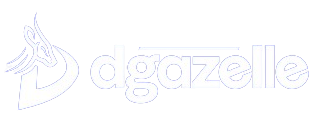You’re probably here because you’re looking to strengthen your website’s online presence and have heard that link-building is one of – if not the most – important activities you can take on.
In this post, I’ll explain the top link-building strategies that are used today. I call these six factors – “integral link-building techniques.” Why? Because that’s precisely what they are. Using the wrong technique at the wrong time will only hurt your link-building campaign. That’s why tailoring your link-building efforts to fit your specific audience and circumstances is so important.

What is link building?
Link-building is the process of gaining links to a website. The links are placed on other sites, and they point back to your site. Link-building is also the process of acquiring backlinks for your website. Backlinks are links from other websites to yours. Backlinks can be acquired through guest posting, content marketing, social media, and other strategies.
Link building is the process of creating connections between your site and others. These links are a crucial part of how search engines determine how relevant your content is to their users.
Link building can be done by both humans and machines. The most effective link building is done by humans. This is because they can help you create natural links that will be more likely to pass link juice to your website.
The goal of any link building strategy should be to get links from high quality websites in order to boost your rankings in search engines.
Why is link building important?
Links are a very important part of SEO. They’re also one of the most difficult parts of SEO because they take time and effort to build up.
Here are some reasons why you should invest in link-building:
Links make it easier for Google to crawl and index your site’s content. This helps Google determine how valuable your content is and how relevant it is – before driving quality users’ searches to your website, which can improve its ranking in search results.

Link-building helps make it easier for your potential audience to find you on the web. It can also help them find useful information about products or services that they’re looking for before they even reach out to you with questions or inquiries about what you offer.
What are the types of link building?
It’s not just about getting links, it’s about getting good links.
The types of link building you use can help you to achieve your goals and improve the overall quality of your sites. The most effective link-building methods will be relevant, authoritative, and contextual.
There are many different types of link building, but generally, here are how they can be classified:
The Good Links
The first type of link building we’ll discuss is good link building. This type of link building comes from editorial links that have been earned by creating awesome content on your website.
It’s not a secret that Google looks at the quality of a website when determining ranking, so it only makes sense that you’d want to earn editorial links from other websites that recognize your SEO-friendly content as being valuable enough to share with their audience.
Organic link building takes a lot more time and effort, but it also means the links you do get are more valuable because they are more difficult for your competitors to replicate
There are many ways to build these types of backlinks. Some of these methods are:
Guest blogging link building: This is probably the easiest way to earn editorial links for your website, as long as you know how to do it right. Guest blogging involves writing articles for other people’s websites in exchange for them linking back to yours or mentioning you somewhere in their content.
To play it safe, any guest blogging should be done with the intent of building your brand and reaching a larger audience – rather than building links. Building links is simply a by-product of doing a great job at that.
Editorial Link Building:
The most obvious example of a good link is when, unbeknownst to you, a journalist (or contributor, or blogger) is so amazed by you, your company, or your products or services that they take the initiative to write an article about you and link to your website.
Ugly Link Building:
These links are simple to create in huge quantities, but they won’t have much of an effect on your organic ranking, if any.
It is a waste of effort to spend time creating these kinds of links, because they will never produce much income or energy income from an investment. Some include:
- Guest Posting at Scale:
Guest posting is one of the most effective ways to build links, and it’s also one of the most abused. Unsolicited pitches are annoying, This can lead to spammy links and poor quality content on your website.
- Generating links from irrelevant websites:
No matter how easy it may be to acquire a link, don’t waste your time if it isn’t relevant.
One of the biggest mistakes website owners make is getting links from irrelevant websites.
The idea behind getting links from relevant websites is that people will trust you more if they see that other sites are linking to you. The idea behind getting links from irrelevant websites is that people will trust you more if they see that other sites are linking to you.
The problem with this is that Google is now very good at figuring out what’s relevant and what’s not, and if they see that a site that has nothing whatsoever to do with your business is linking to you, they’ll consider it a bad sign and penalize your website accordingly.

The Bad Links
Bad links can harm your website’s search engine rankings and your reputation as an online business. Ultimately, they can cost you money.
A bad link is one that is not related to the content on your website and does not point to your site. It could be a link from another website that has nothing to do with what you sell or do. This is called “link spamming”, and it is against Google’s webmaster guidelines.
Poor quality links can be harmful to your search rankings, so it’s important to avoid them.
Here are some reasons why you should avoid bad links:
- Links from the wrong sites. Links from websites that don’t match the topic of your site can hurt your page’s ranking on search engines.
- Links from untrustworthy sources. If the website you’re linking to is spammy or otherwise questionable, Google might see this as a red flag and devalue your link.
- Linking to competitors’ websites unnecessarily, especially in comment sections and forums where they can be purchased or traded for cheap.
- Unnatural backlinks coming from link schemes such as blog commenting or article directories that use automated software to generate traffic for their sites by building links for you in exchange for a “thank you” post that mentions their brand name
- Links in message boards, forums, social media sites like Facebook, Twitter or YouTube
Is link building still relevant to SEO?
Link building is still relevant to SEO, but only if it’s done the right way.
A lot of people think that link building has been “done,” and there’s nothing left to do. They think that all of the good links have been built and all of the bad ones have been removed.
But this isn’t true. Google’s algorithm has always been dynamic, so it makes sense that the strategies for ranking well would also be changing with time.
In fact, there are lots of ways to build links today that weren’t possible even a few years ago! So yes, link building is still relevant — but only if you know how to do it correctly.
6 Effective Ways to Build Links
Link building is an integral part of SEO. But it can be difficult to find the right sites to approach and the right way to approach them. Here are six link-building strategies that will help you get links organically and ethically.
Find linkable assets on your website
Before you go about building links, it’s important to determine which pages on your site are worthy of receiving them.
The easiest way to do this is by using a tool like Ahrefs Site Explorer or SEMrush Site Audit; both are free for basic use and can give you a good idea of what pages might be worth linking to from other sites.
These tools will also tell you how many backlinks each page has and how powerful those links are.
Write compelling content
Make sure your blog posts are optimized for SEO (search engine optimization). The more interesting and unique your post is, the better your chances of getting a backlink.
Write an article about your niche that includes a few other sites, but make sure that it’s not too obvious.

If you have a blog or website that isn’t very popular yet, then you should look for sites with lots of social media followers or search engine traffic and ask them if they’d like to exchange links with you. This can help both parties because each site will gain extra exposure from being linked on the other site’s blog posts or web pages.
Good content is not just something that looks nice and has a good design. It’s something that people want to share.
The most important thing when creating content is to make sure it’s relevant and useful for your target audience.
When writing your content, keep in mind these 6 tips…
Create a guest posting strategy
Your guest posting strategy should be more than just throwing links out there. In fact, I don’t recommend using any guest posting service that doesn’t allow you to select the sites where you want your content to appear.
You can also include some editorial guidelines for what type of content you’d like the publishers to publish, or even select the categories where you want your content published. This will help ensure that your work is high quality and relevant to your audience.

Guest posting can be a great way to build backlinks, but it’s important to do it strategically. If you’re not careful, you could end up with spammy or low-quality backlinks — which don’t help your SEO at all!
Use social media marketing and PR strategically
Social media marketing and PR should be used strategically to build links. You’ll want to make sure that your social media posts are relevant, engaging, and convey the right message.
Even if you have the best content in the world, it won’t matter if no one can find it. That’s why link building is so important — it helps you get your content discovered and shared.

The right links can be a huge boost to your SEO efforts, but they won’t come without some effort on your part. And that’s where so many marketers fail. They don’t do the hard work needed to earn those backlinks, and their websites suffer as a result.
Use social media strategically to build relationships with influencers in your industry and position yourself as an authority figure in your niche;
Don’t forget about internal linking
Internal linking is just as important as external links. It helps search engines crawl your website and understand what your content is about. It also helps users find relevant information within your website by going from one page to another.
Internal linking is a critical part of any SEO strategy. Internal links tell Google that all of your content is related, and it makes it easier for users to navigate your site.
Here are six ways to use internal linking the right way:
- Don’t forget about your homepage
- Link to related pages
- Use keyword-rich anchor text
- Link to important pages in the footer
- Avoid over-optimizing internal links with keywords
- Link to old versions of pages
Focus on user experience
When it comes to link building, the number one rule is to focus on user experience. If people don’t like your content, they won’t share it or link back to it—no matter how many backlinks you have! So make sure that when someone clicks on a link from your site and lands on another site, they’ll enjoy it so much that they’ll want to share it with their friends and followers. This will lead them back to your site naturally, which means more traffic for you and more profits for your business!

Write for humans first and search engines second. When crafting content for your website, you might think that writing for search engines should be your top priority. However, writing for humans is important.
3 things you should not do when building links:
The number one mistake in link building is to do it badly. When you do it badly, you waste your time and money, and you might even end up with a Google penalty.

Here are three things you should never do when building links:
- Don’t buy links from other websites (also known as paid links)
This is against Google’s Webmaster Guidelines because it can cause confusion between paid advertisements and editorial content. This could result in a Google penalty for both parties involved in the transaction, so it’s just not worth it!
- Don’t Outsource Link Building
This can be a huge mistake, especially if your outsourced link builder isn’t an expert in SEO or link building. You need someone who knows what they’re doing and can help you build quality backlinks that won’t get you penalized by Google.
- Spamming
Don’t spam forums or blogs with low-quality content just for link fodder. You’ll be flagged by Google and your site will get a manual penalty. This will cause your rankings to drop like a stone and all of your hard work will go down the drain!
Conclusion
Links aren’t going to disappear as a ranking factor anytime in the foreseeable future, so it’s critical that you understand exactly which type will improve your ranking, which type won’t, and perhaps most importantly, which type will get your website penalized.






